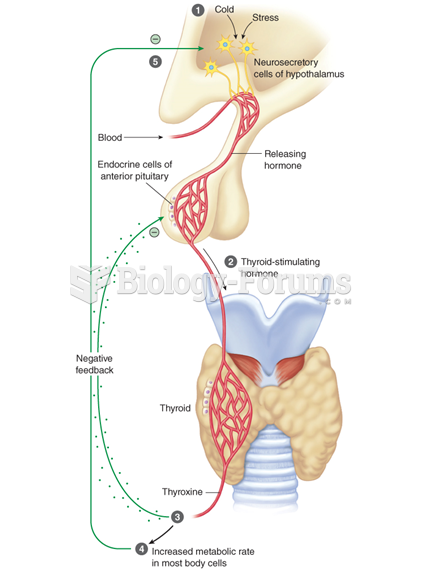|
|
|
Did you know?
Inotropic therapy does not have a role in the treatment of most heart failure patients. These drugs can make patients feel and function better but usually do not lengthen the predicted length of their lives.
Did you know?
Medication errors are more common among seriously ill patients than with those with minor conditions.
Did you know?
About 100 new prescription or over-the-counter drugs come into the U.S. market every year.
Did you know?
If all the neurons in the human body were lined up, they would stretch more than 600 miles.
Did you know?
Cytomegalovirus affects nearly the same amount of newborns every year as Down syndrome.







